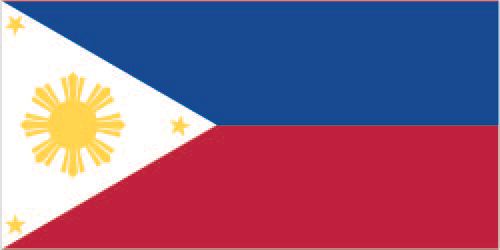Relationships & CommunicationEtiquette in Philippines
Filipinos thrive on interpersonal relationships, so it is advisable to be introduced by a third party.
It is crucial to network and build up a cadre of business associates you can call upon for assistance in the future.
Business relationships are personal relationships, which mean you may be asked to do favours for colleagues, and they will fully expect you to ask them for favours in return.
Once a relationship has been developed it is with you personally, not necessarily with the company you represent.
Therefore, if you leave the company, your replacement will need to build their own relationship.
Presenting the proper image will facilitate building business relationships. Dress conservatively and well at all times.
Business Meeting Etiquette
Appointments are required and should be made 3 to 4 weeks in advance.
It is a good idea to reconfirm a few days prior to the meeting, as situations may change.
Avoid scheduling meetings the week before Easter.
Punctuality is expected. For the most part your Filipino colleagues will be punctual as well.
Face-to-face meetings are preferred to other, more impersonal methods such as the telephone, fax, letter or email.
Send an agenda and informational materials in advance of the meeting so your colleagues may prepare for the discussion.
The actual decision maker may not be at the meeting.
Avoid making exaggerated claims.
Always accept any offer of food or drink. If you turn down offers of hospitality, your colleagues lose face.
It is important to remain for the period of social conversation at the end of the meeting.
Business Negotiation
You may never actually meet with the decision maker or it may take several visits to do so.
Decisions are made at the top of the company.
Filipinos avoid confrontation if at all possible. It is difficult for them to say 'no'. Likewise, their 'yes' may merely mean 'perhaps'.
At each stage of the negotiation, try to get agreements in writing to avoid confusion or misinterpretation.
If you raise your voice or lose your temper, you lose face.
Filipinos do business with people more than companies. If you change representatives during negotiations, you may have to start over. . Negotiations may be relatively slow. Most processes take a long time because group consensus is necessary.
Decisions are often reached on the basis of feelings rather than facts, which is why it is imperative to develop a broad network of personal relationships.
Do not remove your suit jacket unless the most important Filipino does.
Dress Etiquette
Business attire is conservative.
Men should wear a dark coloured, conservative business suit, at least for the initial meeting.
Women should wear a conservative suit, a skirt and blouse, or a dress.
Women's clothing may be brightly coloured as long as it is of good quality and well tailored.
Appearances matter and visitors should dress well.
Business Cards
You should offer your business card first.
Make sure your business card includes your title.
Present and receive business cards with two hands so that it is readable to the recipient.
Examine the card briefly before putting it in your business card case.
Some senior level executives only give business cards to those of similar rank.
